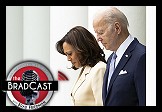 I couldn't help but burst out laughing while reading White House Press Secretary Sean Spicer's description of U.S. District Court Judge William H. Orrick's late Tuesday decision partially blocking a Presidential Executive Order on funding to so-called "sanctuary cities" as an "egregious overreach by a single, unelected district judge."
I couldn't help but burst out laughing while reading White House Press Secretary Sean Spicer's description of U.S. District Court Judge William H. Orrick's late Tuesday decision partially blocking a Presidential Executive Order on funding to so-called "sanctuary cities" as an "egregious overreach by a single, unelected district judge."
(All federal judges are nominated by a President and confirmed by the Senate. None are "elected.")
Not to be outdone by his Press Secretary, Trump via Twitter described the ruling to enjoin the enforcement provision of his January 25 Executive Order as "ridiculous."
In that Executive Order, Trump threatened to withhold and/or recapture all federal funds and grants from any local jurisdiction that did not assist the federal government in its newly aggressive efforts to deport undocumented immigrants.
Trump vowed to appeal all the way to the Supreme Court.
Hilarious!
In the forty (40) years that have passed since I was first admitted to the California State Bar, I can scarcely recall a more one-sided "contested" case --- one in which I actually felt sorry for the Justice Department attorney who had been assigned to defend this indefensible Executive Order...
Unable to refute constitutional challenges
As recited by Judge Orrick in his decision:
The Government does not respond to the Counties' constitutional challenges...[Emphasis added].
The court concluded that neither side disputed these constitutional limits on Presidential power:
What the President says isn't quite what he means
Placed in an untenable position of defending the indefensible, the Justice Department's attorney argued that Trump's Executive Order merely reflect an effort by President Trump to use the "bully pulpit" in order "to highlight a changed approach to immigration enforcement...Counsel disavowed any right through the Order for the Government to affect any other part of the billions of dollars in federal funds the Counties receive every year. ." [Emphasis added].
To this, Judge Orrick replied:
Injunction no broader than DOJ's concession
Judge Orrick did not strike down the entirety of the executive order. Instead he issued a preliminary injunction that limits the President and Attorney General's right to withhold federal funds only to the extent already authorized by existing law. "This injunction," Judge Orrick explained, "does nothing more than implement the effect of the Government's flawed interpretation of the Order."
So, if the order is no broader than that which the Government concedes, what, pray tell, is the legal basis for Trump's vow to appeal the case all the way to the Supreme Court?
Ernest A. Canning is a retired attorney, author, Vietnam Veteran (4th Infantry, Central Highlands 1968) and a Senior Advisor to Veterans For Bernie. He has been a member of the California state bar since 1977. In addition to a juris doctor, he has received both undergraduate and graduate degrees in political science. Follow him on twitter: @cann4ing


 Holding on for Dear Life Amid the Political Whirlwind: 'BradCast' 7/17/24
Holding on for Dear Life Amid the Political Whirlwind: 'BradCast' 7/17/24 Cannon's Corruption: 'BradCast' 7/16/24
Cannon's Corruption: 'BradCast' 7/16/24 'Green News Report' 7/16/24
'Green News Report' 7/16/24
 Amid the Assassination Attempt Aftermath:
Amid the Assassination Attempt Aftermath:
 Meanwhile... :
Meanwhile... : 'Green News Report' 7/11/24
'Green News Report' 7/11/24 Paging 'Johnny Unbeatable'! Dems (Actually!) in Disarray!: 'BradCast' 7/10/24
Paging 'Johnny Unbeatable'! Dems (Actually!) in Disarray!: 'BradCast' 7/10/24 SCOTUS Immunity Ruling 'As Bad as it Sounds', And Worse: 'BradCast' 7/9/24
SCOTUS Immunity Ruling 'As Bad as it Sounds', And Worse: 'BradCast' 7/9/24 'Green News Report' 7/9/24
'Green News Report' 7/9/24 So, What Now?: 'BradCast' 7/8/24
So, What Now?: 'BradCast' 7/8/24 Debunking MAGA Cult Xenophobia
Debunking MAGA Cult Xenophobia Sunday 'Courting Disaster' Toons
Sunday 'Courting Disaster' Toons Sunday 'Bad Medicine' Toons
Sunday 'Bad Medicine' Toons 'Green News Report' 6/27/24
'Green News Report' 6/27/24 A Friendly Suggestion: Harris-Newsom 2024
A Friendly Suggestion: Harris-Newsom 2024 Prosecutor: SCOTUS Corruption Ruling Less Corrupt Than Appears: 'BradCast' 6/27/24
Prosecutor: SCOTUS Corruption Ruling Less Corrupt Than Appears: 'BradCast' 6/27/24 Good News and Bad: At the Polls and From the Corrupted Court: 'BradCast' 6/26/24
Good News and Bad: At the Polls and From the Corrupted Court: 'BradCast' 6/26/24 'Emptywheel' on Assange Hacking, Plea Deal: 'BradCast' 6/25/24
'Emptywheel' on Assange Hacking, Plea Deal: 'BradCast' 6/25/24 Fox 'News' Grooming Viewers for Another Insurrection: 'BradCast' 6/24/24
Fox 'News' Grooming Viewers for Another Insurrection: 'BradCast' 6/24/24 The Prophecy and Warning of the White Buffalo: 'BradCast' 6/20/24
The Prophecy and Warning of the White Buffalo: 'BradCast' 6/20/24 CA Biz Group, WSJ 'Fabricate' $20/hr Fast Food Wage Stats: 'BradCast' 6/19/24
CA Biz Group, WSJ 'Fabricate' $20/hr Fast Food Wage Stats: 'BradCast' 6/19/24 Interference Threats Loom Over November's Presidential Election: 'BradCast' 6/18/24
Interference Threats Loom Over November's Presidential Election: 'BradCast' 6/18/24
 VA GOP VOTER REG FRAUDSTER OFF HOOK
VA GOP VOTER REG FRAUDSTER OFF HOOK Criminal GOP Voter Registration Fraud Probe Expanding in VA
Criminal GOP Voter Registration Fraud Probe Expanding in VA DOJ PROBE SOUGHT AFTER VA ARREST
DOJ PROBE SOUGHT AFTER VA ARREST Arrest in VA: GOP Voter Reg Scandal Widens
Arrest in VA: GOP Voter Reg Scandal Widens ALL TOGETHER: ROVE, SPROUL, KOCHS, RNC
ALL TOGETHER: ROVE, SPROUL, KOCHS, RNC LATimes: RNC's 'Fired' Sproul Working for Repubs in 'as Many as 30 States'
LATimes: RNC's 'Fired' Sproul Working for Repubs in 'as Many as 30 States' 'Fired' Sproul Group 'Cloned', Still Working for Republicans in At Least 10 States
'Fired' Sproul Group 'Cloned', Still Working for Republicans in At Least 10 States FINALLY: FOX ON GOP REG FRAUD SCANDAL
FINALLY: FOX ON GOP REG FRAUD SCANDAL COLORADO FOLLOWS FLORIDA WITH GOP CRIMINAL INVESTIGATION
COLORADO FOLLOWS FLORIDA WITH GOP CRIMINAL INVESTIGATION CRIMINAL PROBE LAUNCHED INTO GOP VOTER REGISTRATION FRAUD SCANDAL IN FL
CRIMINAL PROBE LAUNCHED INTO GOP VOTER REGISTRATION FRAUD SCANDAL IN FL Brad Breaks PA Photo ID & GOP Registration Fraud Scandal News on Hartmann TV
Brad Breaks PA Photo ID & GOP Registration Fraud Scandal News on Hartmann TV  CAUGHT ON TAPE: COORDINATED NATIONWIDE GOP VOTER REG SCAM
CAUGHT ON TAPE: COORDINATED NATIONWIDE GOP VOTER REG SCAM CRIMINAL ELECTION FRAUD COMPLAINT FILED AGAINST GOP 'FRAUD' FIRM
CRIMINAL ELECTION FRAUD COMPLAINT FILED AGAINST GOP 'FRAUD' FIRM RICK SCOTT GETS ROLLED IN GOP REGISTRATION FRAUD SCANDAL
RICK SCOTT GETS ROLLED IN GOP REGISTRATION FRAUD SCANDAL VIDEO: Brad Breaks GOP Reg Fraud Scandal on Hartmann TV
VIDEO: Brad Breaks GOP Reg Fraud Scandal on Hartmann TV RNC FIRES NATIONAL VOTER REGISTRATION FIRM FOR FRAUD
RNC FIRES NATIONAL VOTER REGISTRATION FIRM FOR FRAUD EXCLUSIVE: Intvw w/ FL Official Who First Discovered GOP Reg Fraud
EXCLUSIVE: Intvw w/ FL Official Who First Discovered GOP Reg Fraud GOP REGISTRATION FRAUD FOUND IN FL
GOP REGISTRATION FRAUD FOUND IN FL


































